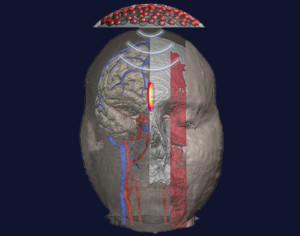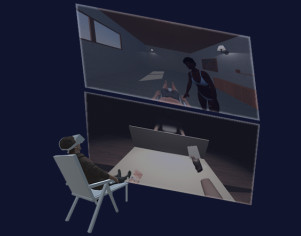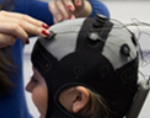The Neuroscience and Society research line has been recently opened among Istituto Italiano di Tecnologia. For more information, please, contact the Principal Investigator Salvatore Maria Aglioti

The activities of the research line Neuroscience and Society relate to the emerging field of social neuroscience, integrated with the original research concerning the neural representation of body image in healthy and brain-damaged patients, under the assumption that the body is the psychic object par excellence, at the core of many higher-order cognitive and social processes. In this scenario, one aim of the research topic is to investigate the possibility to stimulate specific neuronal areas in a safe and controlled manner. Among the widely used noninvasive brain stimulation techniques, focused ultrasound stimulation is an emerging technique for stimulating the brain more focally and deeply. Our purpose is to develop innovative ultrasound transducer configurations based on constructive beam interference methods, capable to reach deep brain structures without affecting the intervening ones.

Capitalizing on the transformative power of Immersive Virtual Reality (IVR), we aim to clarify how, and to what extent, our body contributes to define our psychology and behavior and how such processes affect our interactions with others. Specifically, the research topic applies IVR to the investigation of how different facets of body awareness affect moral decision-making in digital and virtual contexts, and how incorporation of positive (role) models can shape our attitudes towards legality, organized crime and gender bias, ultimately countering antisocial behavior and promoting moral integrity.

The aim of this research topic is to identify and characterize the neural mechanisms that underlie cognitive, social, and emotional control. To this end, we focus on the frontal lobes, and especially the Prefrontal Cortex and its related electrocortical signature, the theta rhythm. Our ultimate goal is to contribute to an understanding of how this ability emerges in the brain, how it changes across the lifespan, and in neuropsychiatric conditions, such as Parkinson's disease (PD). Our research involves a tight integration of convergent cognitive neuroscience methods, such as Non-Invasive Brain Stimulation techniques and behavioural paradigms.